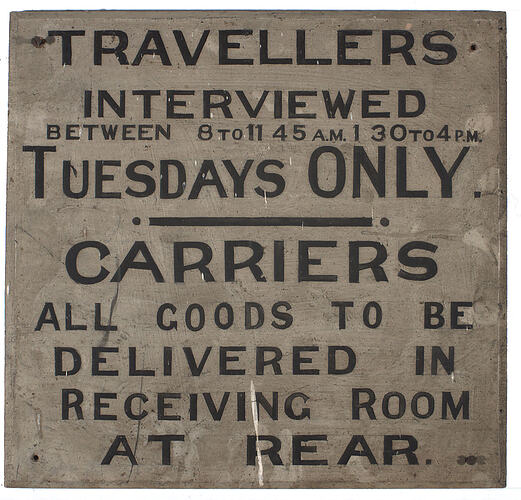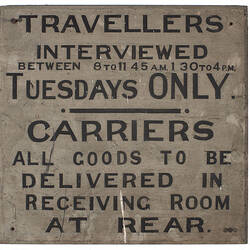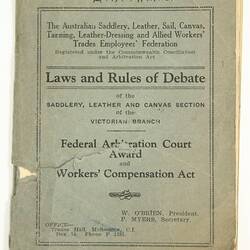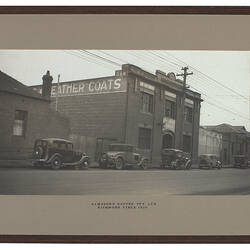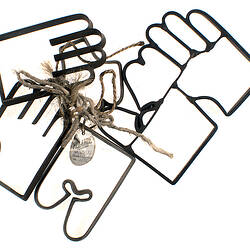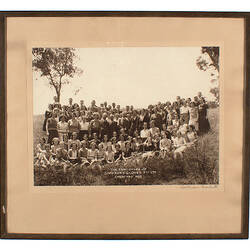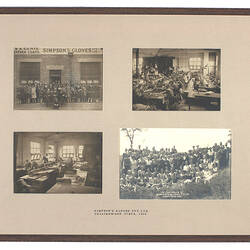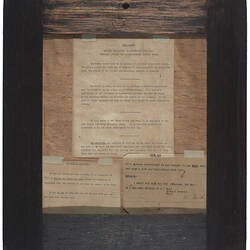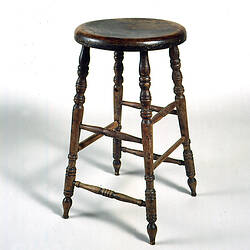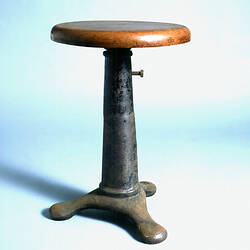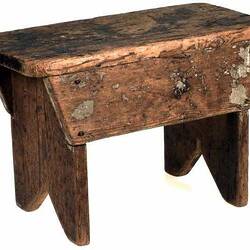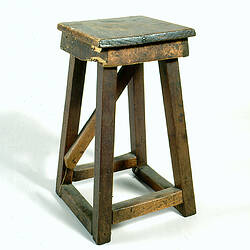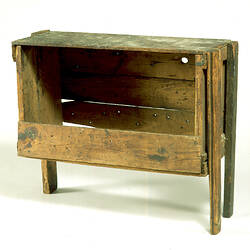Hours worked at Simpson's Gloves were normally 7.45am to 5.15pm, with half an hour for lunch. In the 1930s at peak periods, workers worked a 48 hour week, which was later reduced to 44 hours. There was 10 minutes for morning tea and no afternoon tea.
Workers typically ate their lunch at their work benches, and some would take their lunch into Studley Park via the footbridge across the Yarra. After workers complained, a lunch room was provided in the 1950s, but after a few weeks they reportedly went back to eating at their benches.
Workers provided their own tools of trade, and wore their own aprons, which they took home to wash weekly. Amos Simpson objected to women wearing trousers, so they all were required to wear dresses. This could pose its own challenge. One married office worker later recalled that one of the foremen would chase the young women up the stairs, trying to put his hand up their skirts. She would advise them: 'Well, you know what to do, just kick backwards when you get to the top'.
Apart from a pre-Christmas lunch, which the workers provided, there were no special outings or picnics organised by the managers. Amos Simpson evidently hated spending money on anything that did not result directly in greater production.
There was a social life, inside and outside the factory. The radio would be played at least part of the day through the intercom, and workers would sometimes sing along. In 1935 Hazel Morgan, a young handbag assembler, was selected to represent Simpson's in a charity fundraising competition among local business. She was crowned Queen of Richmond in an event at Richmond Town Hall. Amos Simpson and his wife attended the event, and he announced the award on the intercom the next morning.
Amos Simpson and his partner Henry Atkins typically took off an afternoon every second week during the 1930s to play golf at the Heidelberg Golf Club, where both were members.
Archives:
The University of Melbourne Archives holds business records relating to the company, including ledgers, journals, wages books, time books and catalogues.
References:
Frances, Raelene (1986).'No More Amazons: Gender and Work in the Victorian Clothing Trades, 1880-1939', Labour History, no 50: 95-112.
Interviews with former managers and workers: Arthur Atkins (1989), Ernie Jordan (1989), Nell Marks (1989), Hazel Eddy & Gwen Simons (1990).
More Information
-
Keywords
-
Authors
-
Article types
